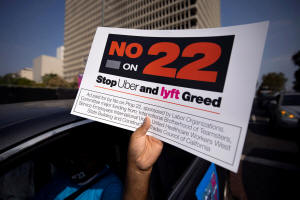Factbox: More U.S. states okay recreational marijuana in wide-ranging
ballot questions
 Send a link to a friend
Send a link to a friend
 [November 05, 2020]
By Peter Szekely and Sharon Bernstein [November 05, 2020]
By Peter Szekely and Sharon Bernstein
(Reuters) - Voters in four states joined
several others in legalizing marijuana for recreational use on Election
Day, while Oregon approved the country's first therapeutic use for
psilocybin, the hallucinogenic drug known as magic mushrooms.
The ballot measures, some of which were undetermined until Wednesday,
were among at least 124 wide-ranging statutory and constitutional
questions put to voters this year in 32 U.S. states and the District of
Columbia, according to the National Conference of State Legislatures (NCSL).
The pandemic dampened grass roots enthusiasm for circulating petitions
to get measures on the ballot, as citizen-led initiatives this year
dropped to 38 from 60 in 2018 and 72 in 2016, the NCSL said.
But the 2020 crop of ballot measures still covered a wide array of
issues, from election laws, to abortion rights, to worker rights and
taxes. Here are some of key results confirmed by the NCSL:

MARIJUANA
Voters in New Jersey, Arizona, South Dakota and Montana approved
measures to legalize marijuana for recreational use, while South Dakota
also okayed the drug's use for medical purposes, as did Mississippi.
Since 1996, 33 other states and the District of Columbia have allowed
medical marijuana, 11 had previously approved its recreational use and
16, including some medical marijuana states, have decriminalized simple
possession, according to the National Organization for the Reform of
Marijuana Laws.
PSILOCYBIN, AKA MAGIC MUSHROOMS
Psilocybin, a hallucinogen also known in its raw form as magic
mushrooms, was approved by Oregon voters for therapeutic use for adults.
Backers of the Psilocybin Services Act cited research showing benefits
of the drug as a treatment for anxiety disorders and other mental health
conditions. The approved measure sets a two-year schedule to review the
matter and create a regulatory structure for its sale.
In a related measure, Washington, D.C., voters approved Initiative 81,
which directs police to rank "entheogenic plants and fungi," including
psilocybin and mescaline, among its lowest enforcement priorities.
MINIMUM WAGE
Voters in Florida approved a measure to amend the state constitution to
gradually increase its $8.56 per hour minimum wage to $15 by Sept. 30,
2026.

[to top of second column]
|

App-based gig workers hold demonstration outside Los Angeles City
Hall to urge voters to vote no on Proposition 22, a November ballot
measure that would classify app-based drivers as independent
contractors and not employees or agents, in Los Angeles, California,
U.S., October 8, 2020. REUTERS/Mike Blake

CALIFORNIA GIG WORKERS
California voters approved a measure that would exempt ride-share
and delivery drivers from a state law that makes them employees, not
contractors. The measure, Proposition 22, is the first gig-economy
question to go before statewide voters in a campaign. Backers,
including Uber Technologies Inc <UBER.N> and Lyft Inc <LYFT.O>,
spent more than $190 million on their campaign, making it the
costliest ballot measure ever, according to the NCSL.
ABORTION
Colorado voters rejected a measure to ban abortions, except those
needed to save the life of the mother, after 22 weeks of pregnancy.
In Louisiana, voters approved an amendment that makes clear that the
state constitution does not protect abortion rights or funding for
abortions. The amendment clears the way for the state to outlaw
abortion if the U.S. Supreme Court overturns the landmark Roe v.
Wade decision that protects abortion rights under the U.S.
Constitution.
ELECTIONS
Ranked-choice voting, which lets voters select state and federal
candidates in order of preference, was rejected by Massachusetts
voters. Only Maine lets its voters use the method statewide. A
citizen-initiated measure on the issue was also on the ballot in
Alaska, but results there were incomplete.
California approved a measure to restore the right to vote to
parolees convicted of felonies.

TAXES
In California, a proposal to roll back a portion of the state's
landmark Proposition 13 law limiting property taxes was too close to
call on Wednesday. The measure, Proposition 15 on the state's 2020
ballot, would leave in place protections for residential properties,
but raise taxes on commercial properties worth more than $3 million.
(Reporting by Peter Szekely in New York and Sharon Bernstein in
Sacramento; Editing by Simon Cameron-Moore)
[© 2020 Thomson Reuters. All rights
reserved.] Copyright 2020 Reuters. All rights reserved. This material may not be published,
broadcast, rewritten or redistributed.
Thompson Reuters is solely responsible for this content. |